Over the past few days, a furore has erupted in the Australian media over an interview on Sydney-based Channel 7 breakfast show Sunrise on Thursday 11th of February 2016, with former Sex and the City actress Kristin Davis.
Davis was purportedly to be interviewed by Sunrise co-host Samantha Armytage about her work as a supporter of the refugee advocacy organisation UNHCR, which Davis was in Australia to promote. Following a brief series of questions focusing on her advocacy work, Davis was subjected to an apparently humiliating excerpt from one of the Sex and the City feature films, and then forced to take part in a mock re-enactment skit of Sex and the City featuring Amytage and two other female presenters, Natalie Barr and Edwina Bartholomew.1
The Sydney Morning Herald today published an editorial piece (online) by ABC journalist Virginia Haussegger, in which she attacked Samantha Armytage and launched a broad, scathing critique of female journalists on commercial television for the way they, as Haussegger describes, “present themselves as mindless bimbos.”2 Haussegger makes the claim in her piece that the three female presenters involved in the Sunrise segment with Davis – Armytage, Barr and Bartholomew – committed “a major disservice to feminism.” She writes:
If Armytage and Co. don’t give a hoot about feminism – fine. But perhaps they should think about women like themselves – glamorous, privileged women who are in positions of power and influence – and how hard others have fought for such women to be taken seriously. To be heard. And to have their views considered worthy of prime time, serious discussion.
There are plenty of pretty women on Australian TV. But when it comes to the important stuff of the day – the stuff that makes the news – there is a screaming lack of representation of women’s knowledge, wisdom and expertise.
Which only makes the Sunrise bimbo brigade’s antics all that more depressing.3
Haussegger glowingly praises Davis’ work in her article, commenting on how Davis has used her star power from her days acting in Sex and the City to raise awareness and garner attention for her UNHCR refugee advocacy cause. She draws a parallel between apparently privileged position Davis has found herself in and uses to her advantage, and the similarly privileged position Armytage and her co-presenters are in as high profile commercial journalists. However, she insinuates that they have failed to use their hard-won positions to help others.
A few hours after Haussegger’s editorial appeared on the Sydney Morning Herald website, Edwina Bartholomew was quoted in a follow-up article defending Samantha Armytage against Houssegger’s claims. Bartholomew put forth her own feminist credentials in response by ‘tweeting’ the following comment:
The sisterhood in action @virginia_hauss. You might be surprised to know even ‘mindless bimbos’ can be feminists https: //t.co/s5vJkoRR4a
Edwina Bartholomew (@edwina_b) February 14, 20164
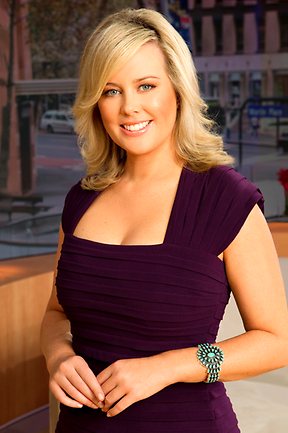
Samantha Armytage (presenter)
This tit-for-tat chest-beating exercise in feminist pontificating between two female journalists serves to highlight the misdirected and narrow-sighted ideology feminism has become. In the middle of the war of words is Kristen Davis, whose purpose for the interview was to promote her work concerning the widespread sexual abuse of women and children. These women and children have conveniently been forgotten by Haussegger, whose point was solely about the backwards steps the female Sunrise presenters, in one small segment, have allegedly caused modern, contemporary feminism. Never mind the refugee women and children who truly are suffering – it’s female journalists and their place in the hearts and minds of the Australian public, their profession and television executives which truly matter.
Haussegger ignores the target audience at which Sunrise producers would be aiming the segment and the show itself. The show has long presented a laid-back and casual atmosphere. This was the very premise on which Sunrise was originally slated when it first went to air in its current format, in 2002, as an alternative to rival Channel Nine’s more serious styled Today Show.5
In the fourteen years it has been on air, Sunrise has consistently rated highly against its competitors. Nevertheless, its target audience is not the same as compared to the viewers Haussegger would have been presenting to when she interviewed Kristen Davis on the 7pm ABC News bulletin. Commercial breakfast television shows generally take a more light-hearted approach to news and interviews because the early-morning viewership is understandably time-poor: salaried employees getting ready for their day at work, women trying to get their children off to school. This demographic is usually in no position to be giving serious news stories the same levels of attention they would in the evening, when the major news bulletins are televised. The Sunrise skit, designed to raise a few laughs, is the typical kind of light ‘infotainment’ that appeals to time-poor women as they start their working day.
Regardless of whether Armytage was complicit in the Sunrise segment or not, the planning and the final say on whether it was filmed or went to air at all lay with the executive producer, Michael Pell. It was his job to piece together the episode – which was obviously not thought up on the spot but carefully scripted – in accordance with what would best rate with the target audience. Michael Pell was quoted in an online article from the Daily Telegraph on the same day the Sunrise segment went to air:
We are Sex and the City tragics at Sunrise. Our obsession may have gotten the better of us. We apologise for the bad acting and terrible costumes and we thank Kristin for being such a good sport. She is one of the most gracious stars we’ve had at Brekky Central.6
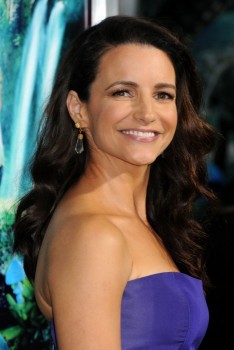
Kristin Davis (actress)
The fact that women – women who are not Armytage – have fought so hard to have their voices heard does not mean Armytage, or any other female journalist, is obliged in every step she takes to promote a feminist cause, or ride along on the coat tails of an ideology she may not agree with. Had she wanted to promote a cause – any cause – she would be better off doing it in a medium other than Sunrise, where she is under the direction of others in more senior positions and supposed to be presenting stories free of any underlying agenda. Haussegger has therefore betrayed the very element of the misguided ideology she promotes, which is freedom of choice. Female journalists apparently have had their free choice in the stories they present, and the way in which they present them, publicly sacrificed on the altar of feminism.
Of course, the manner in which the story was presented, and what its says for quality television, these things are not immune from criticism. Indeed, this could be described as ‘car-crash viewing’ at its most painful, but any criticism should be directed to the production management staff at the network in question. Repercussion will come in the form of a drop in ratings, and as Armytage personally experienced, a more severe consequence would be not only her removal as host for the function ‘Australia for UNHCR’ (at which Davis was to present a speech) but being banned from attending altogether.7
If Haussegger is to use this segment as a point from which to launch an attack on the way women in position of power present themselves, she should perhaps also examine the show Sex and the City itself. This series, which portrayed the ‘girl-power’ movement of the ‘90s in one of its most narcissistic ways, played out the sexually ‘liberated’ lives of four women living in New York. The main protagonist, portrayed by Sarah Jessica Parker, was, somewhat ironically, a writer who published articles chronicling their lives and the men they entered sexual relationships with, and laid bare the morally questionable ways in which they treated these men. In terms of feminism, there are few better shows to embody the movement. In terms of personal conduct, there are few better shows to provide a reference point on how not to conduct oneself in personal and professional relationships. The very show which many used as something of a pop culture poster child for the modern, liberated woman has proven itself to be a double edged sword for those who appeal to its ‘empowering’ and ‘liberating’ message.
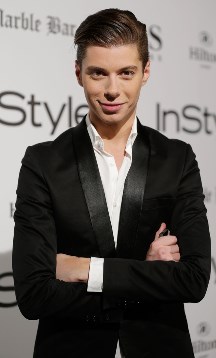
Michael Pell (producer, seriously)
And of course the obvious must also be asked: why did not Haussegger question why Davis, if she felt as hard done by and cheated of an opportunity to talk at length about her cause as she says she did, went ahead with the skit at all and did not register a complaint or raise a protest at the time the skit was filmed?
Lastly, Haussegger takes a shot in her opening paragraph in her editorial at “daft women on commercial breakfast TV.”8 The primary targets in the piece are, as highlighted, Armytage, Barr and Bartholemew. However, there are other women who feature prominently on commercial breakfast television. Also at Sunrise are Melbourne correspondent Rebecca Madden, Monique Wright and Talitha Cummins on Weekend Sunrise. At rival network Channel Nine, Lisa Wilkinson co-hosts rival breakfast programme The Today Show, and at Channel Ten Jessica Rose, Sarah Harris and Ita Buttrose co-host breakfast show Studio 10.
As Lisa Wilkinson publicly expressed support for Davis after the Sunrise segment went to air, and despite the more cynical view that this may simply be an early attempt at securing Davis for an interview for a rival programme, who exactly did Haussegger have in mind when she included that broad swipe in her opening paragraph?
Belinda Maree is a conservative activist in the Sydney area. She formerly worked in newspaper and magazine publishing, television and radio, and currently appears on the conservative radio show Carpe Diem every Monday night
Endnotes:
- Jenna Clarke, “Sex and the City star Kristin Davis in cringeworthy Sunrise skit with Sam Armytage” Sydney Morning Herald (11 February 2016)
- Virginia Haussegger, “How the bimbos of breakfast TV disgraced themselves and feminism” Sydney Morning Herald (15 February 2016)
- Ibid.
- Cited in: Ebony Bowden, “Sunrise’s Edwina Bartholomew defends ‘bimbo’ Sam Armytage in wake of Kristin Davis interview” Sydney Morning Herald (15 February 2016)
- Adam Boland, Brekky Central- Behind the Smiles of Australian Breakfast Television (Melbourne: Melbourne University Press, 2014)
- Sally Rawsthorne, “Things may get uncomfortable at UNHCR lunch for Kristin Davis and Sam Armytage after ‘that’ skit” The Daily Telegraph (11 February 2016)
- Megan Levy, “Samantha Armytage replaced as host of UNHCR lunch with Kristin Davis” Sydney Morning Herald (12 February 2016)
- Virginia Haussegger, op. cit.
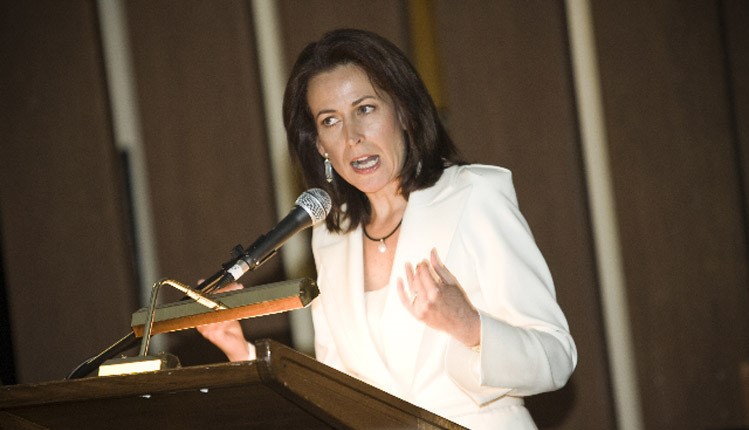



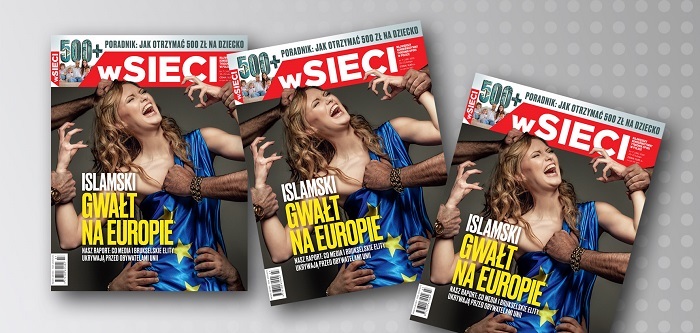
Be the first to comment on "The Petty Circular Firing Squads of Feminist Journalism in Australia"